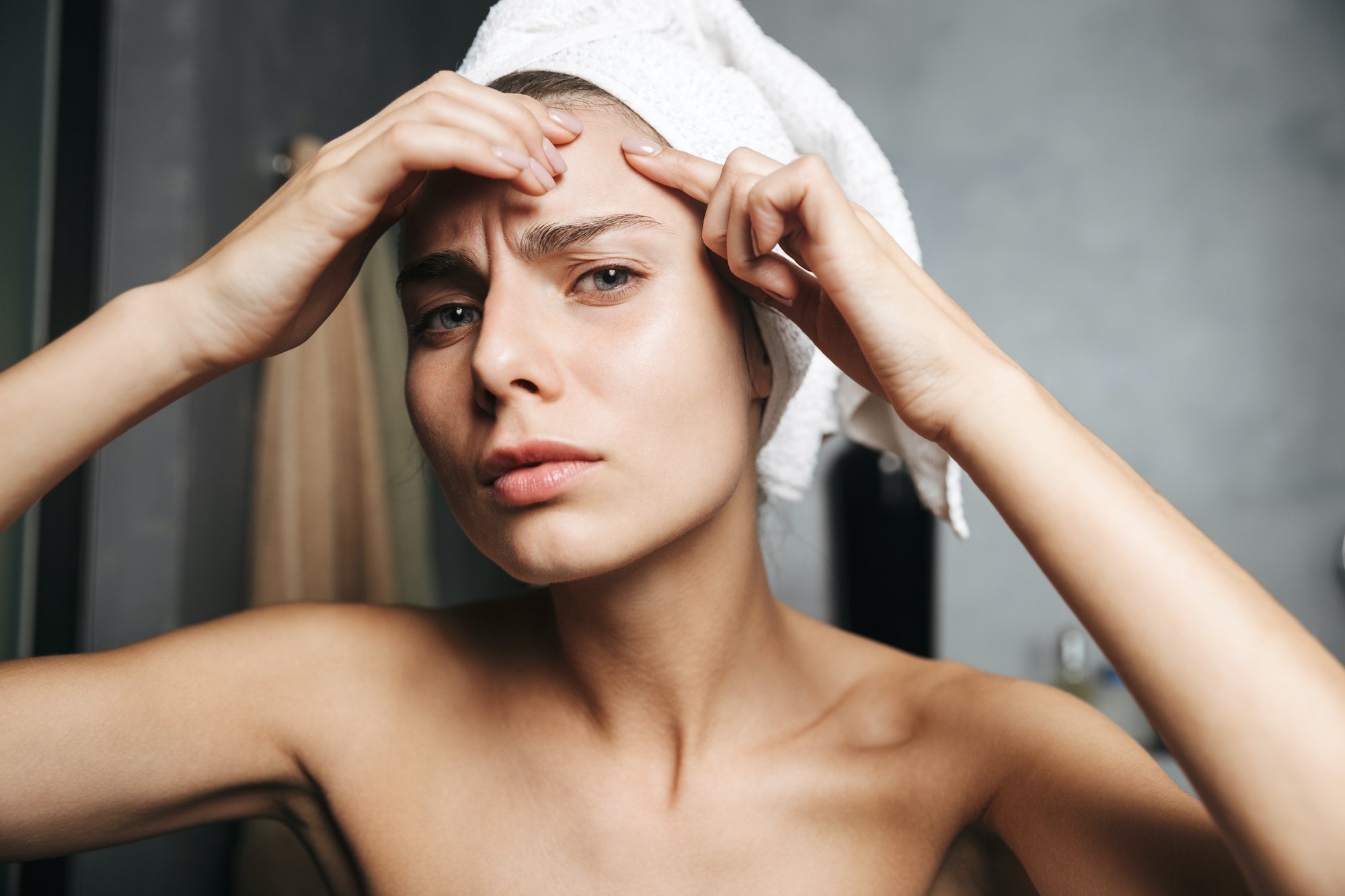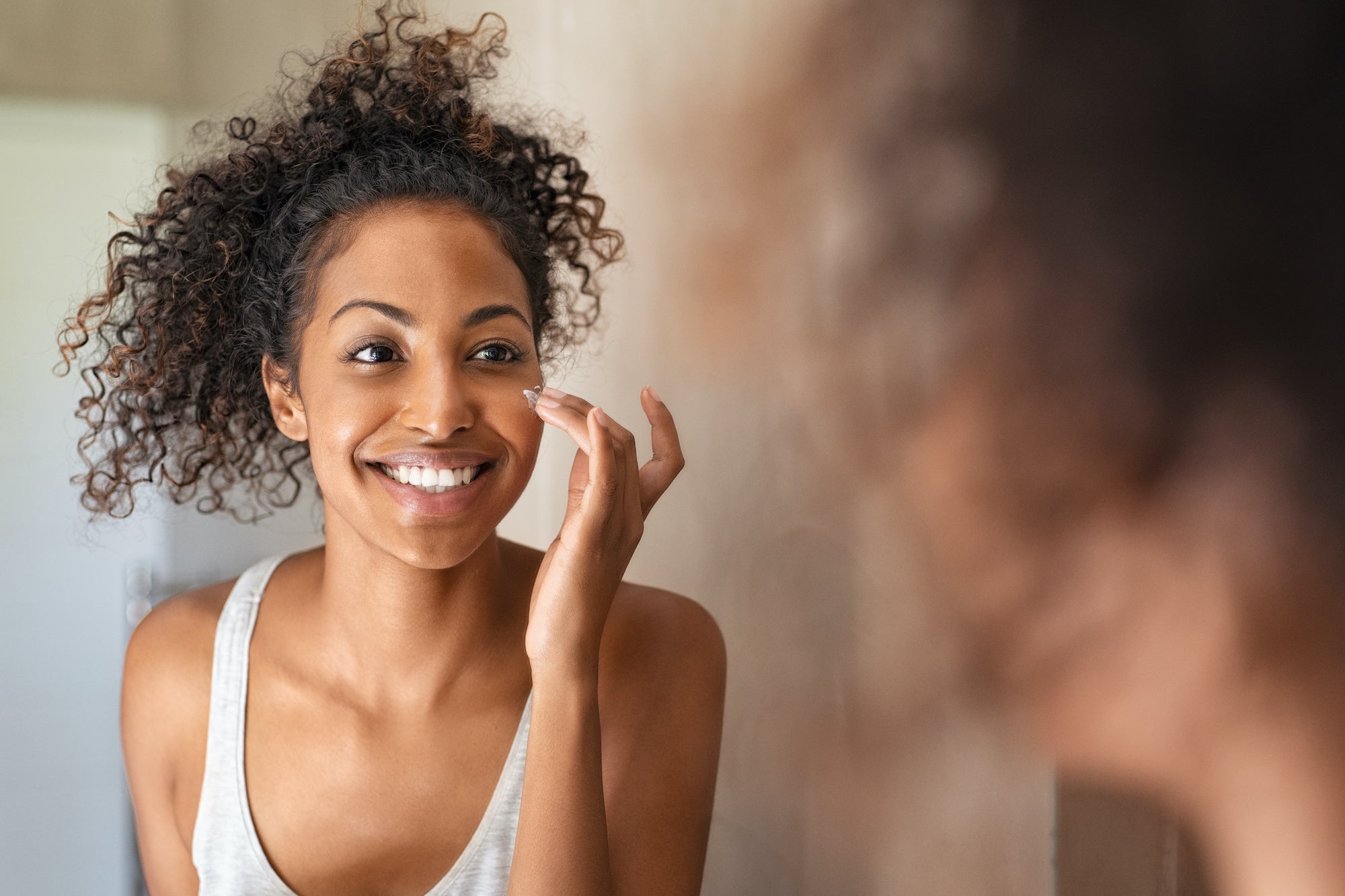
Pregnancy Skin Care: How to Get That Glow
“My skin went CRAZY while I was pregnant!”
There are a lot of expectations that come with pregnancy: a growing belly, luscious hair, a bit of swelling, and the pregnancy glow. It’s so sought after that newly pregnant ladies might find themselves rushing to the mirror following a positive test in search of any change in their appearance.
But as we all know, expectations don’t always match reality. Many women deal with the opposite. In my case, pregnancy brought with it the worst acne I have ever experienced in my life.
It was painful, it was blotchy, and it was as far from that glow as you could get.
What’s worse is I had to ditch all my go-to skincare products and opt for something safe for use during pregnancy. Out of all the ‘pregnancy-safe’ skin solutions I tried, nothing made a dent in my blemish-riddled skin. So I was left with painful, irritated breakouts for 9 months.
Thankfully, skincare is an always improving industry and for those newly pregnant mommas, there are safe and effective options for your pregnancy-induced problem skin.
Be sure to consult your healthcare provider before using any products or ingredients while you’re pregnant.
Do Skin Care Products Affect Your Pregnancy?
Anything you put onto your skin works its way into your body. When your body is working day and night to grow another human, you have to be overly cautious about what you use to keep it healthy.

There isn’t an exact science to figure out how much of a topical product ends up in your bloodstream.
Doctors have determined the thinner the skin, the more a product will be absorbed. For instance, something applied under your eyes will enter your body much faster than a product you use on your back.
So it stands to reason, the products you put on your face need to be completely no-risk to the health of your growing babe.
Skin Care Ingredients to Avoid When Pregnant
Not every cosmetic ingredient has been tested for use during pregnancy, but there are some that doctors agree are definite no-nos.

1. Retinoids: Studies show that a very small amount of retinoids applied topically actually absorb into the skin. While in most cases, retinoid use hasn’t caused problems during pregnancy, there are reports of birth defects that are related to using retinoids. Without further testing, it’s probably safest to avoid them.
2. Whitening creams, like hydroquinone: It might be tempting to apply whitening cream to keep the melasma at bay, but studies have shown that as much as 45% of this product is absorbed into the skin. If you ask us, that’s too much of a foreign chemical in your bloodstream to risk any effects on your baby.
3. Salicylic acid: A favorite for acne fighters, this ingredient is mostly okay when used topically. It poses a real risk to your unborn baby when you ingest it. But even though it might be technically safe, your skin is so sensitive during pregnancy, that it could cause unneeded discomfort. Don’t you already have enough of that?
4. Tazorac/Accutane: Both these treatments are prescription-only and are proven to cause birth defects. ‘Avoid at all costs’ is an understatement.
5. Tetracycline: This is an antibiotic acne treatment that has dire consequences for unborn babies. Possible side effects include permanent tooth discoloration, bone growth problems, and malformation of the embryo.
6. Chemical Sunscreen: We all know that sunscreen is a daily necessity, pregnant or not. This is a product that you want to choose carefully. There is some evidence that suggests chemical sunscreen (with ingredients like oxybenzone, avobenzone, octisalate, octocrylene, homosalate, or octinoxate) can cause problems for your baby during pregnancy. It’s best to stick with mineral sunscreens that use zinc oxide and titanium dioxide.
7. Synthetic Fragrance: Some skincare products try to mask the harsh, chemical smell of their ingredients with synthetic fragrances. These are often made with things like parabens, benzene derivatives, and other compounds that are linked to cancer. One to avoid.
A Pregnancy-Safe Skincare Routine That Actually Works
One look at the list above might have all of you baby-growing goddesses fleeing as far from acne treatments as possible. Sure, you might have painful acne but nothing is worth risking the life of your baby.

Luckily as our culture steers towards a collective appreciation for all things natural and organic, there are more healthy skincare options for all of us.
As always, you should consult with your healthcare provider before using any products or ingredients during your pregnancy.
At Averr Aglow we prioritize high-quality, natural ingredients. We don’t use any of the harsh chemicals or common irritants listed above.
Natural actives like rosewater, saw palmetto, manuka oil, French pink clay, and camellia kill bacteria, balance skin oil, even tone, reduce lines and marks, and renourish for a healthy complexion.
When you’re pregnant you should be focusing on baby names and nursery designs, not stressing about clear skin. Let us help with your complexion so you can spend your time on the important things. Prenatal massage anyone?





